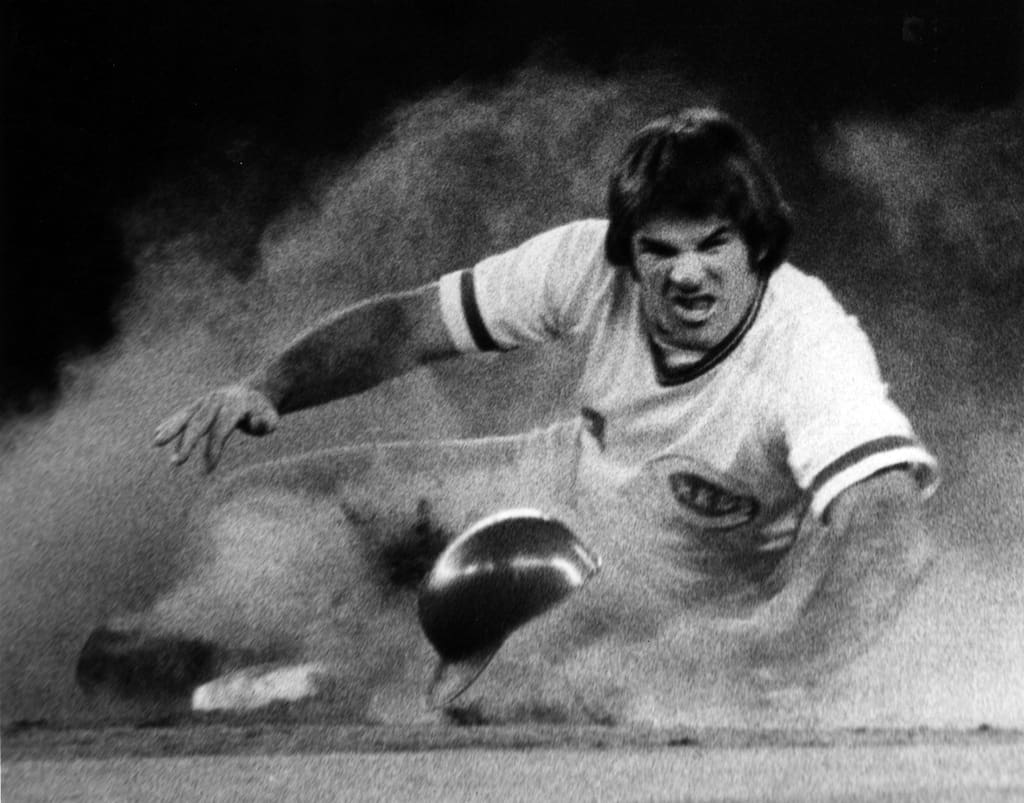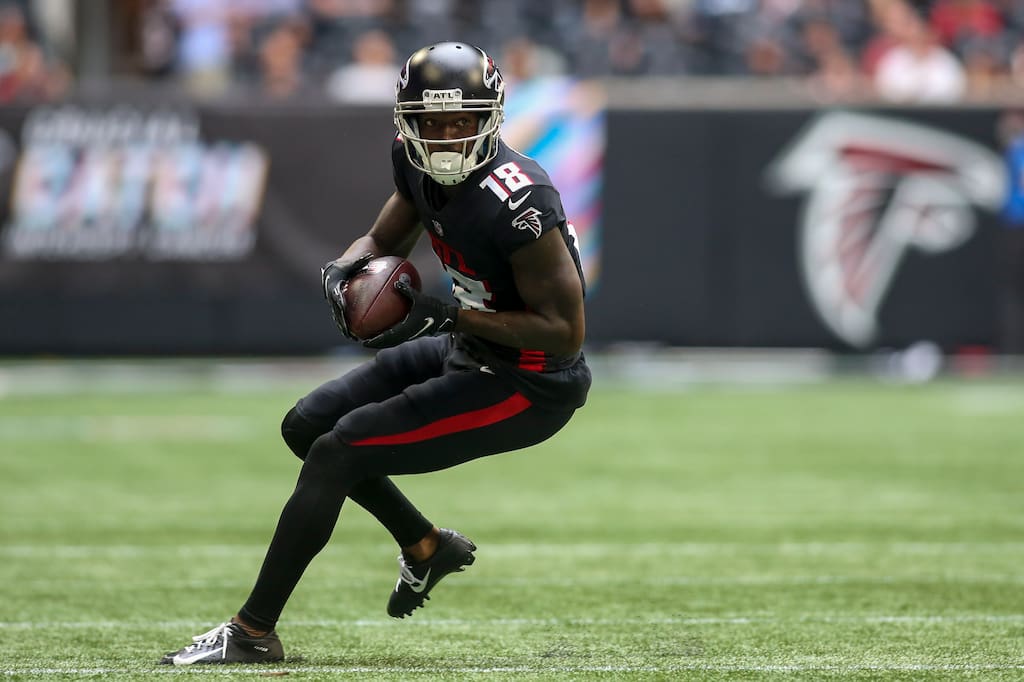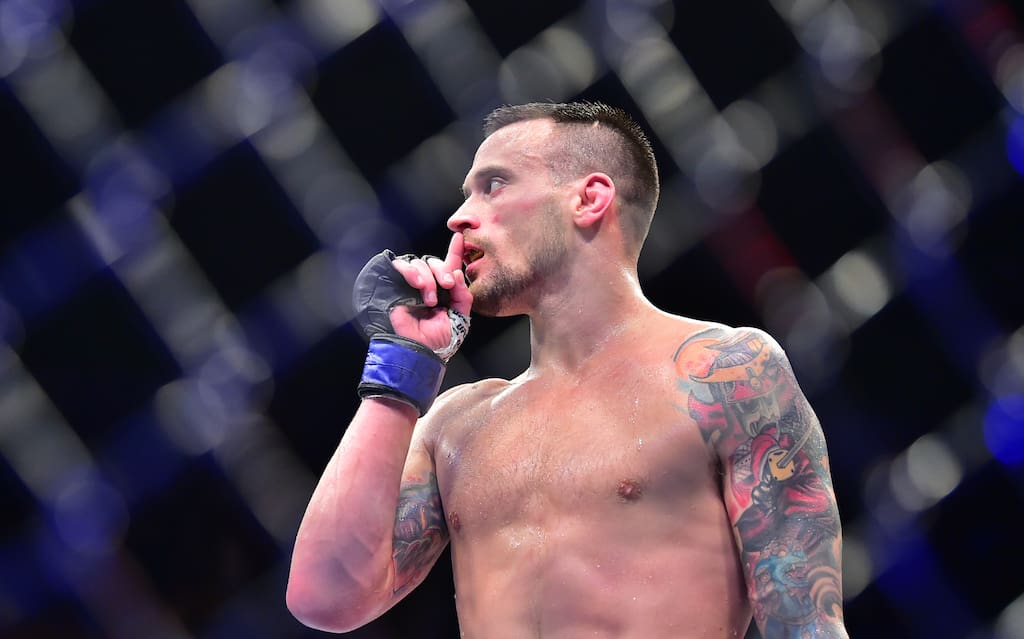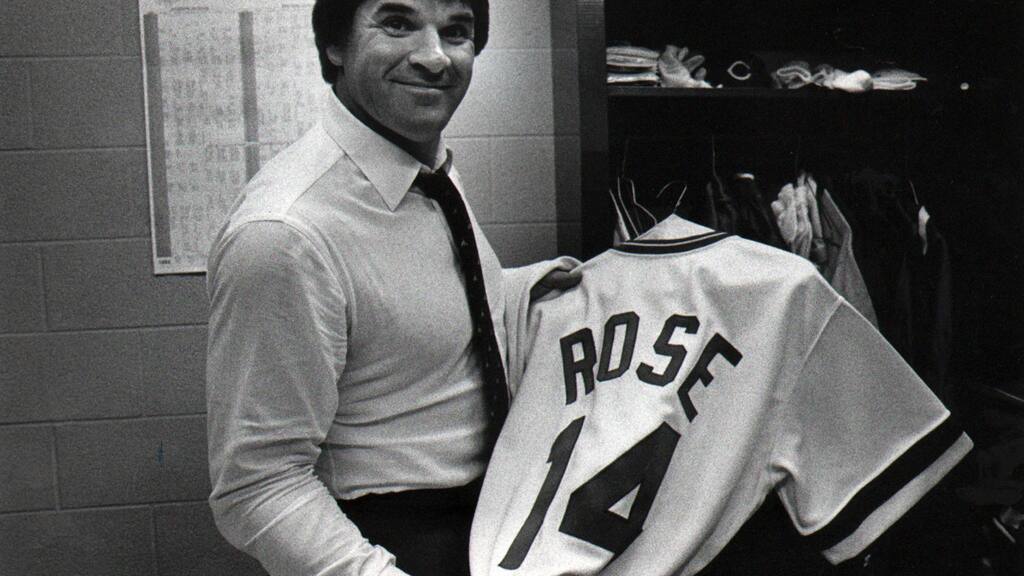History of Sports Betting Rule Breakers
In the long and illustrious history of professional sports, we have been treated to a multitude of uplifting moments, inspiring stories, and jaw-dropping moments that have left a profound impact on fans from across the globe.
While sport has brought the world together and provided a positive impact, there have also been several instances that cast a shadow over the sports world, with sports gambling making a negative impact on the athletes competing.
Sports betting is a fun and exciting hobby for any fan, but it is when collusion among those competing in said events begins to transpire that can harm the integrity of the sports world. These sports betting rule breakers’ actions have led to controversy, legal troubles, and hefty punishments for those involved, yet still, we see instances of these infractions today.
Below we have compiled some of the most notorious examples of sports betting rule breakers in professional sports that date back to over a century ago but are still relevant today. Learn all about the biggest sports betting controversies below and how they impacted the modern-day sports gambling space.
Why are Sports Betting Rules in Place?
All professional sports leagues have some sort of sports gambling rules set in place. These rules and regulations are designed to keep an even playing field and maintain their events’ integrity.
With the ever-growing sports landscape, more money than ever has been pumped into these leagues, making the outcome of each game incredibly important as each team does their best to improve its record and revenue.
Keeping this in mind, this is exactly why leagues around the world have implemented sports betting rules for the athletes, coaches, and other individuals directly involved in the competitions. While some league rules may vary from one another, one instance remains the same, under no circumstance can you wager on a matchup you are a part of.
Many of the incidents featured below differ in severity as well as how the offences occurred, but they all share one commonality, and that is that they broke the betting rules of their sport.
1919: The “Black” Sox (MLB)
One of the first and most infamous cases of sports gambling rule breaks occurred over 100 years ago with the Chicago White Sox in the 1919 World Series, leading them to be referred to as the “Black Sox”. In this case, eight White Sox players were accused of throwing games in the World Series Final against the Cincinnati Reds in exchange for money.
The cash in question that was promised to the players for fixing the matchup was generated through a sports gambling group run by Arnold “The Brain” Rothstein, who was a well-known crime boss and racketeer in the United States.
Because of this incident, the “National Baseball Commission” which had been overseeing the MLB for nearly two decades at that time was dissolved and replaced by Judge Kenesaw Mountain Landis. Judge Landis would then be appointed as the first-ever MLB commissioner and would oversee the league until his death in 1944.
Judge Landis would bring the hammer of justice down upon those involved in the “Black Sox” scandal, permanently banning the eight players involved from ever playing in the MLB again. This ban also would eventually be extended to the baseball Hall of Fame as it deemed each player involved ineligible for consideration into the most prestigious honour the sport has to offer.
1948: Don Gallinger & Billy Taylor (NHL)
Not far out from the “Black Sox” scandal, 30 years later a new sports gambling racket would take the sports world by storm as a pair of players from the NHL would be banned for life from the top hockey league in the world.
Two Boston Bruins teammates and Canadians, Don Gallinger & Billy Taylor were found guilty of betting on games they were directly involved in during the 1947-48 season. Gallinger & Taylor colluded together to place bets on their teams performance, both to win and to lose depending on the matchup.
Both players would windup getting caught for their betting scheme after Gallinger would bring in known criminal James Tamer to place a bet with them on the outcome of an upcoming game. Tamer had previously had his phone lines wiretapped by police who were looking to gain information for other non-gambling-related crimes.
Gallinger & Taylor would eventually be suspended for life by NHL President Clarence Campbell for their actions. Fast forward 30 years into the future and the NHL would reinstate both players in 1971, long after their playing days had come to an end.
1951: City College of New York (NCAA)
The first of many NCAA betting scandals to come, the City College of New York (CCNY) point-shaving scandal rocked the college basketball world and has left an impact that is still felt today.
Coming off of a sensational season in which they would become the first and only team to win the NCAA and NIT tournaments in the same year, CCNY would come under fire as they would be investigated for jeopardizing the integrity of the NCAA. In a situation that started off small, this point-shaving scandal would grow to span over seven different schools and involve 33 total players.
This sports gambling ring linked to organized crime would eventually be exposed after Manhattan College player Junius Kellogg would not only refuse bribes offered to him to shave points but would report said offers to the New York City District Attorney’s office instead.
Kellogg would then go on to wear a wire while discussing point-shaving offers at a bar to gain concrete evidence that the sports gambling ring did in fact exist. After this several players were arrested for conspiring to fix games including the three star players from CCNY’s championship squad, Ed Warner, Ed Roman and Al Roth.
Since this major sports betting scandal, CCNY has effectively reduced funding and focus from their athletic programs, now currently a Division III school, a long fall from the Division I Champions from over 70 years ago.
1964: British Football Match-Fixing Scandal (EFL)
A sports betting scandal from across the pond in which 10 players in the English Football League would be arrested for match-fixing.
This match-fixing syndicate was started and run by Sheffield Wednesday player Jimmy Gauld for several years. Multiple times Gauld alongside other players would band together and collude to fix a matchup after betting against themselves in a matchup.
Gauld didn’t just organize match-fixing on games he was apart of, after his syndicate began to grow, Gauld and company were also able to fix the results of other matches taking place throughout the EFL.
After a few years of successfully profiting off of their match-fixing organization, Gauld would be exposed as the mastermind of this match-fixing syndicate after being named in an interview by former-Hartlepools United player Ken Thompson, who had been involved in the betting scandal himself.
Gauld would eventually receive a four-year prison sentence for his efforts, while the other players involved would end up with sentences ranging from 9-15 months imprisonment. All players involved we subsequently banned from competition for life, but many would successfully appeal their punishments seven years later.
1986: Team Canada at the Merlion Cup (INT)
A singular event that damaged and besmirched the reputation of Soccer Canada for years, the 1986 Merlion Cup is a black eye on the country’s sporting history as well as a major sports betting scandal.
The Merlion Cup was an annual invitational soccer tournament held in Singapore that ran from 1982-86, and was brought back for one-off iterations in 1992, 2009, and 2019. This invitational has featured Olympic National teams as well as club squads over the course of the tournament’s history.
In 1986, the Merlion Cup would set the stage for a major betting scandal that would have drastic implications for members of the Canadian Men’s National Team, as well as Soccer Canada as a whole. Coming directly after Canada’s first FIFA World Cup appearance, the men’s national squad would receive an invite to participate in the 1986 Merlion Cup.
In this tournament the Canadians would perform well, finishing with a bronze medal win by the end of the competition. This however would not be what they would be remembered for as it would later be revealed that five Canadian players had accepted bribes from bookmakers to assist in a match-fixing scandal during their semi-final game against North Korea.
The five players involved were named Chris Chueden, Paul James, Hector Marinaro, David Norman, and Igor Vrablic, all of who had promising futures in Soccer but would come to a devastating collapse due to this betting scandal.
This scandal would ultimately be exposed as James was overwhelmed by guilt and would confess the situation to teammate Randy Regan, who would have the information spread throughout the public. Chueden, Norman, Marinaro, and Vrablic would all be charged upon their return to the country for accepting bribes and bringing illegally earned funds back to the country.
While the four players were not able to be charged criminally in Canada as the illegality took place in Singapore, each athlete would receive a year-long ban from competition directly from FIFA. This would cause a ripple effect that would affect the careers of each player involved as well as directly harm Soccer Canada long-term.
1989: Pete Rose (MLB)

The most well-known and infamous case of sports betting rule breaks came from one of the best to ever play the game of baseball, Pete Rose. The case of Rose and his involvement in sports betting is still one of the most debated topics in North American sports as the masses remain torn to this day on how the incident should have been handled based on the information available.
A three-time World Series winner, league MVP, and the MLB’s all-time leader in hits, Rose was an incredible talent that amassed a plethora of accomplishments over the course of his 24-year career. With untouchable records, terrific team success, as well as a solid record as a manager, you’d think he would be a surefire Hall of Famer. But alas, Rose will never reach Cooperstown due to his troubled past in sports gambling.
As previously mentioned above in reference to the “Black Sox” scandal of 1919, the MLB han absolutely zero tolerance for sports gambling by players. With one-year suspensions given to players who bet on games and lifetime bans for those who wagered on their own team’s matchups, the risk-reward ratio for players was far more leaning towards the side of risk.
Even with these drastic implications and punishments for players involved in sports betting, this didn’t stop one of the game’s most notable players from placing bets on his own team. In 1989 an investigation was launched against Rose to see if he had been involved in any form of sports betting as a manager for the Cincinnati Reds.
While Rose would initially deny the allegations against him, he would later on reveal he did in fact gamble on Reds games, but would only bet on his team to win. While this certainly wouldn’t constitute match-fixing, it still broke the MLB’s no-betting policy and as a result, Rose was dealt a lifetime ban from the sport as well as barred from ever entering the MLB Hall of Fame.
1994: Arizona State Men’s Basketball Team (NCAA)
Following in the footsteps of the aforementioned CCNY, the Arizona State point-shaving scandal would send shockwaves across the NCAA and affect both the Division I school as well as those involved.
In 1994, four Arizona State men’s basketball games would be fixed as a result of star player Stevin “Hedake” Smith would work hand-in-hand with fellow ASU student and friend Benny Silman to shave points in their conference matchups. Smith was indebted to Silman over football gambling and would be coerced into point-shaving in order to clear his debt as a result.
This scandal would effectively end any potential NBA stardom for Smith as he was a highly touted prospect previous to the point-shaving incidents.
Fellow ASU basketball team member Isaac Burton would later be brought into the fold to help aid in the point-shaving efforts in return for cash provided by Smith. Smith and Burton would play to ensure that their team would either cover or fail to cover whatever the point spread was of their game, purposefully missing shots or allowing easy scoring chances for their opponents in order to win the bets of Silman and his associates.
Sportsbooks would eventually notice the suspicious activity and begin to report to the NCAA to investigate which would then lead to the arrest of all parties involved. After begin found guilty of shaving points, Silman would be sentenced to just under four years of prison, while Smith and Burton would be dealt shorter sentences, two months in prison for Burton, and one year for Smith.
Along with Burton, Smith, and Silman, four other men named Joseph Mangiamele, Dominic Mangiamele, Vincent Basso, and Joseph Gagliano were directly involved in the point-shaving scandal and received prison sentences of their own for their actions. Each were responsible for encouraging the scandal as well as actively participating and recruiting one another to participate.
2007: Tim Donaghy (NBA)
Sometimes when your team doesn’t get a call or the game just doesn’t seem to be going your way, the word “rigged” can sometimes be thrown around when referring to the officials refereeing a contest. While this is almost always not the case, in the instance of Tim Donaghy, NBA referees came under heavy fire due to his actions.
After a full-scale FBI investigation, it was determined that NBA referee Tim Donaghy had been betting on games he was officiating during the 2005-06 and 2006-07 seasons. Donaghy was found guilty of directly impacting NBA games in order to turn a profit on his bets.
Donaghy utilized the connections and privileges garnered as an NBA official to get inside information regarding players’ health status, team game plans, and other key information used by sports bettors prior to tipoff in order to gain an additional edge on his bets.
Donaghy pleaded guilty to two felony charges of conspiracy and would serve 15 months in prison as well as an additional three years of supervised release.
Fuel was only added to the fire when Donaghy would later allege in 2008 that the NBA had directly ordered him and other referees to improperly and unfairly call games in the postseason to extend series lengths in “the best interest of the NBA”. While these claims were denied, many still speculate as to how much inside collusion takes place within the NBA.
Donaghy’s story was further elaborated on after his prison sentence both through his tell-all book “Personal Foul: A First-Person Account of the Scandal That Rocked the NBA” as well as the Netflix documentary “Operation Flagrant Foul”.
2021: Calvin Ridley (NFL)

One of the latest sports gambling rule breakers to enter into the mainstream, NFL wide receiver Calvin Ridley would receive a one-year suspension that would result in him missing the entirety of the 2022 regular season.
One of the league’s top up-and-coming receivers, Ridley was starting to develop into a solid pass-catching threat as a member of the Atlanta Falcons. This would all be derailed after Ridley would be found guilty of placing multiple parlay wagers as well as betting on a matchup in 2021 involving his Falcons squad in which he backed his team to pick up the win.
Ridley was on a five-day leave of absence from the team citing mental health issues at the time the bets were placed. Similarly to the Pete Rose incident mentioned above, even though Ridley was betting in favour of his team, he still broke the league’s mandates in regard to sports gambling.
The league investigated the matter thoroughly and three parlays were found to be placed for a grand total of $1500, a far cry from the whopping $10.9 million he was under contract for with the Falcons.
I bet 1500 total I don’t have a gambling problem
— CALVIN RIDLEY (@CalvinRidley1) March 7, 2022
After the suspension, Ridley would later be traded to the Jacksonville Jaguars in a twist of irony as this was the team he had bet against that led to his suspension in the first place. Ridley is set to return to action in 2023 where he will look to reinstate himself as a top wideout in the NFL.
2022: James Krause (UFC)

A scandal that would lead to the Alcohol and Gaming Commission of Ontario banning UFC betting in the province, James Krause masterminded a way for his following to profit off of fights in which he cornered.
One of the rising stars in mixed martial arts coaching, former UFC veteran James Krause would be banned from the sports top promotion after an FBI investigation was launched after suspicious gambling activity was detected around a fight involving Krause.
In a matchup in which Krause cornered longtime UFC fighter Darrick Minner against a dangerous striker Shayilan Nuerdanbieke, the fight would quickly end via first-round TKO after the Chinese fighter would outland Minner 32-5 before the bout was stopped.
While on the surface it seemed as if the wiley vet had finally had his curtain call, more and more news would begin to break surrounding the legitimacy of the outcome.
It would later be proven that Minner had entered the bout with a pre-existing injury, something that Krause would leak out to his inner circle of UFC handicappers referred to as the “1% Club”. An avid sports gambler, Krause had boasted about his betting successes, even stating that he made more from betting than he did from coaching or fighting.
With a large and loyal following towards his betting advice, several subscribers to his betting platform flocked for more advice where Krause would reveal Minner’s injury prior to the fight. This would then lead to a surge in bets in favour of Nuerdanbieke, causing oddsmakers to investigate the suspicious betting behaviour as well as update pre-match odds.
As a result of his indiscretions, the UFC would lay the hammer down on Krause, banning him from all competition as well as any fighters who chose to train with him, as well as suspending Minner. Flyweight Jeff Molina would later be suspended by the Nevada Athletic Commission as the investigation surrounding Krause extended into several of his fighter’s past matchups.
Molina has yet to be proven guilty but rising suspicion has placed him as someone who was largely involved in the Krause betting scandal
The UFC previously allowed their fighters to wager on fights but has since changed their stance due to this betting scandal.
Want more of the best betting stories and sports gambling advice in the Great White North? Canadian Sports Betting has got you covered for all things sports betting including providing the top-ranked online sportsbooks in Canada.

:quality(70)/s3.amazonaws.com/arc-authors/xlmedia/e446ed8c-c200-46ca-bbd5-3816457d877d.jpg)




